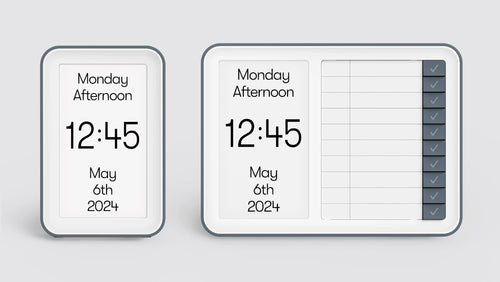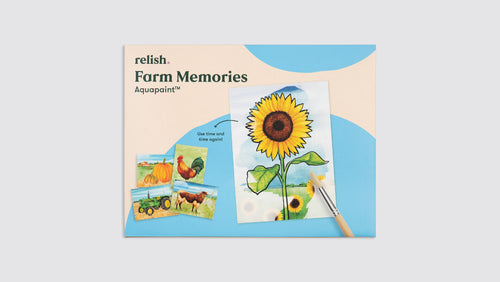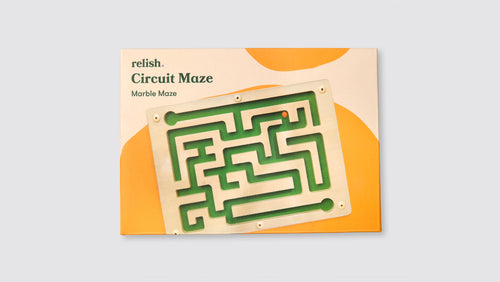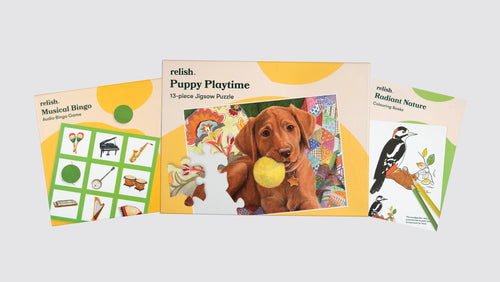Fall or autumn — whichever term you use — is a favourite season for many due to the scenes of leaves turning orange, yellow, red, and brown and the swirling scents of cinnamon, apples, and pumpkins wafting through the air. Though the metamorphosis from summer to winter is beautiful, it can also be melancholy as it represents the return of cold weather. This metaphor is fitting when it comes to dementia stage progression. While progression usually signifies symptoms will get worse and the person living with dementia will begin to struggle with more memory lapses, there are ways to stimulate the senses and sharpen the capabilities that remain.
By nature, dementia and Alzheimer’s are progressive diseases, meaning that they can start as relatively mild and barely noticeable or visible at first, but the symptoms eventually get worse — usually over the course of several years. And their reach is vast—affecting memory, critical thinking, problem solving and communication, and often affect the inward emotions, outward perceptions, and behaviour towards others.As dementia progresses, some level of support in the person’s daily life becomes requisite, however the timeline for this varies for every person. While the three main stages of dementia are generally referred to as early, mid-stage, and late, these are merely a guide and there are many substages that those in the medical profession use in terms of the symptoms and effects on the person living with the disease experiences, both physically and mentally.
Since every individual’s wants, needs, and preferences vary, it is important that you take an assessment or inventory of the things that are important to you in your daily life if you are living with dementia and communicate it to family members or friends. Or, if you are a caregiver that you are tuned into what the person values and needs, especially as they move through stage progression. While there will always be curveballs when it comes to dementia or Alzheimer’s, creating a stable and routine-driven lifestyle will really help the person living with it live better AND more easily.
Regulating Can Be the Key to Rooting the Person Living with Dementia
In the early stages of dementia, the short-term memory is impacted much more directly than the long-term, which can severely impact more of the day-to-day tasks that are embedded in daily routines. So, keeping as much predictability as possible in the early stages is of the utmost importance. By establishing routines early, it can also bode better for the person’s progression into the middle stages of the disease.
People living with mid-stage dementia can often feel useless when they are no longer involved in daily tasks — so having them do mundane tasks around the house (obviously according to ability level) can actually be beneficial. For example, something like sweeping and having the person hold the dustpan will provide a sense of purpose and accomplishment. The key is to not criticize how they perform the task, but to offer praise for having done it.
In the later stages, the passage of time becomes fuzzy and can cause disruption to circadian rhythms, making sleep elusive and differentiating day from night difficult. So, basing tasks or activities on the time of day or after mealtimes can be a great way to incorporate nonverbal cues into a routine. This is especially important when communication skills become more limited, and you’ll need to rely more on other modes of communication besides verbal cues. For example, if the person with dementia is signaled to do a particular activity based on opening the curtain and comes to acknowledge sunlight as the trigger for the behavior, he/she may eventually equate the light with the activity. And these types of visual clues can serve as signals to perform specific tasks or activities at certain times.
We at Relish pride ourselves on offering lots of advice, tips, and products that can help you continue to flourish. From articles to podcasts to our downloadable Wellness app for caregivers, Relish offers a myriad of resources for the dementia community at https://relish-life.com. You can also visit us at Useful Links page for links to websites or apps with content tailored to helping you to take care of yourself while living with dementia.
















